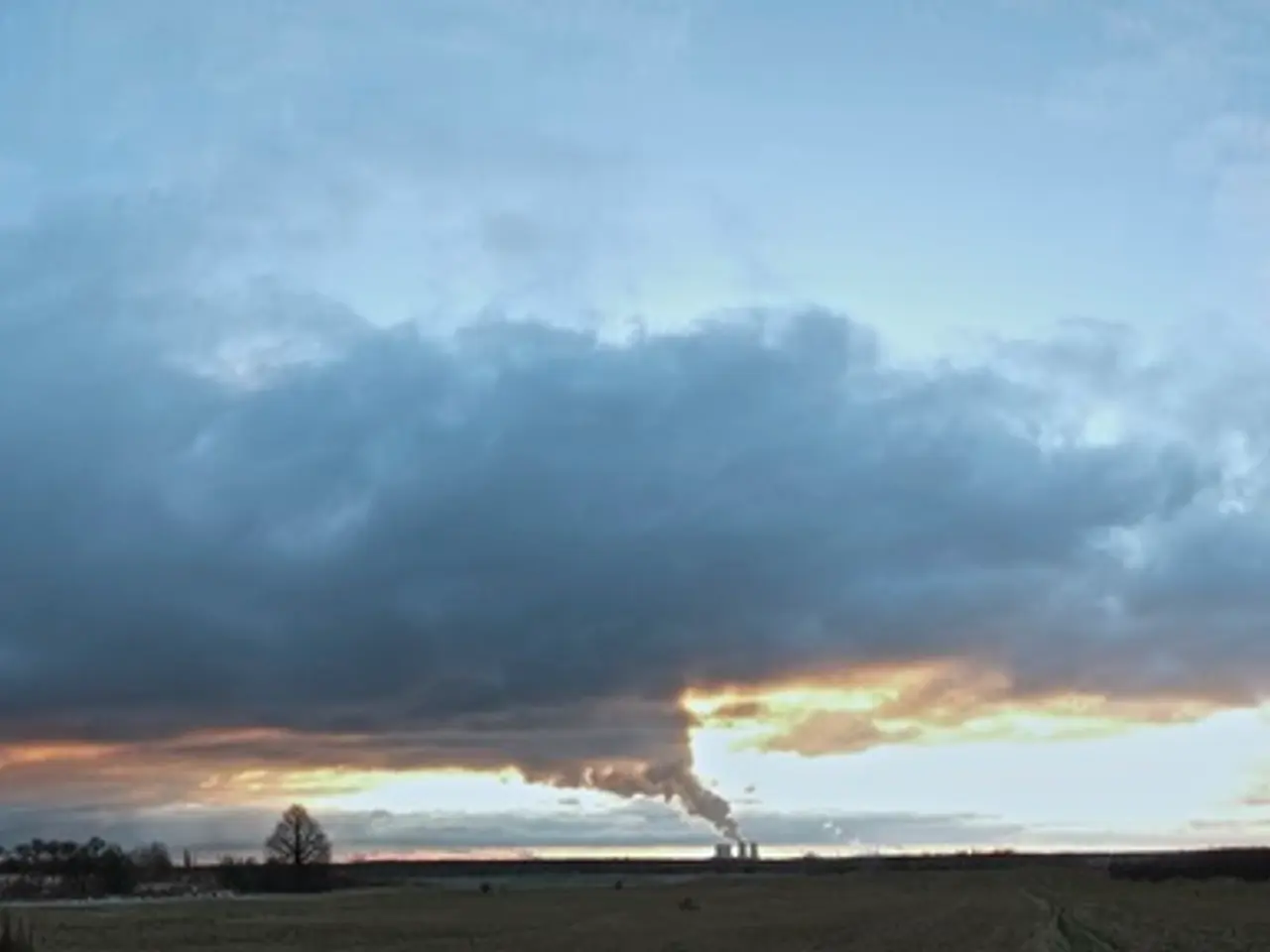Greenhouse gas emissions no longer considered detrimental to human health in the USA - U.S. Proposal Suggests Disregarding Greenhouse Gases as Potential Health Threats
The United States Environmental Protection Agency (EPA), under the leadership of Administrator Lee Zeldin, has proposed a significant move that could reshape the nation's approach to climate change. The EPA has proposed to reconsider and repeal the 2009 Endangerment Finding, a decision that could have far-reaching implications for the regulation of greenhouse gas (GHG) emissions [1][2][3][4].
The Endangerment Finding, as it stands, classifies GHG emissions as hazardous under the Clean Air Act. This classification has served as the legal foundation for EPA regulation of GHG emissions from vehicles and stationary sources. If finalized, the repeal would remove all GHG emission standards for light, medium, and heavy-duty vehicles and engines, and potentially undermine EPA's authority to regulate GHG emissions more broadly from industrial and utility sectors [1][2][3][4].
This proposal could lead to a regulatory rollback, potentially reversing much of the progress made in reducing GHG emissions over the past 16 years. The removal of the Endangerment Finding could lead to increased GHG emissions due to reduced regulatory constraints [2].
The EPA's proposal is based on several arguments, including recent Supreme Court decisions that have limited agency authority. The EPA interprets that its original 2009 independent scientific judgment overstepped its legal mandate under the Clean Air Act [2][3][4].
The EPA also cites potential cost savings, contending that repealing GHG regulations will lower costs for cars and consumer products [2]. However, critics warn that these plans contradict the scientific consensus on climate change and threaten existing climate protection regulations [1].
The EPA refers to updated scientific data contesting prior assumptions about climate risk associated with GHGs, including a 2025 Department of Energy study. However, these challenges to the scientific basis are controversial and subject to public comment [3].
Environmental groups have immediately announced legal action following Zeldin's statement, indicating their opposition to the proposed repeal [1]. The final status and impacts of the proposal may evolve based on the public input process, which is open until September 21, 2025 [1][3].
It is important to note that the transportation sector is the largest CO2 emitter in the US [4]. Dena Adler from the Institute for Policy Integrity at New York University finds it hard to imagine that vehicle emissions will no longer be considered a contributor to climate change, as intended by the government [4].
The proposed repeal of the Endangerment Finding, if finalized, could significantly weaken the US regulatory framework for combating climate change and emissions reductions. This move could have wide-ranging environmental, legal, and economic effects, potentially reversing much of the progress made since 2009 under the Clean Air Act.
[1] https://www.epa.gov/newsreleases/epa-proposes-reconsider-endangerment-finding-greenhouse-gases [2] https://www.epa.gov/greenhouse-gas-emissions-technology-and-regulatory-impacts/proposed-rule-greenhouse-gas-emissions-and-efficiency-standards-medium-and-heavy-duty-engines [3] https://www.epa.gov/newsreleases/epa-proposes-reconsider-endangerment-finding-greenhouse-gases-and-revise-technology-based-standards-light-duty-vehicles [4] https://www.nytimes.com/2021/03/31/climate/biden-climate-change-executive-orders.html
- The Commission, in light of current events, has been asked to submit a proposal for a directive on the protection of the environment, specifically addressing climate-change and greenhouse gas emissions, given the United States Environmental Protection Agency's (EPA) proposal to reconsider and potentially repeal a regulation that classifies these emissions as hazardous.
- Amidst political discussions on policy-and-legislation concerning climate-change, it is crucial to consider the implications of this EPA proposal, as its finalization could lead to a regulatory rollback, reversing much of the progress made in reducing greenhouse gas emissions and potentially undermining environmental-science-based GHG regulations.
- In the arena of general-news, critics are voicing concerns that the EPA's proposal, which is based on controversial interpretations of the Clean Air Act and potential cost savings, contradicts the scientific consensus on climate-change and threatens existing climate protection regulations.




